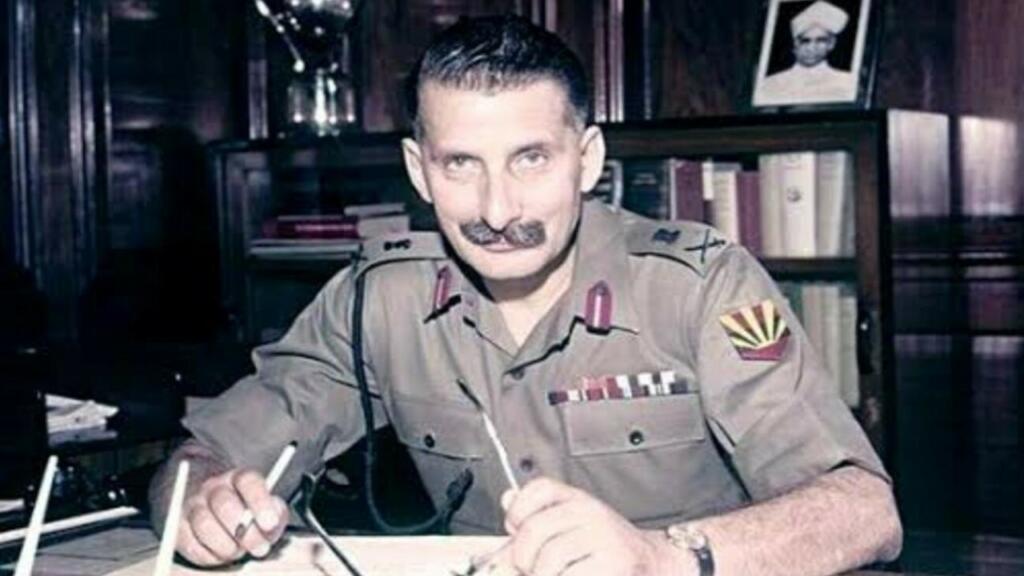Sam Manekshaw story: At the height of the war, a soldier lay gravely wounded, his breaths becoming increasingly labored. Despite his critical condition, the surgeon on duty refused to treat him, citing the needs of other soldiers. Furious, the surgeon’s subordinates threatened to kill him if he did not attend to the wounded soldier.
After some time, the surgeon relented and prepared to treat the soldier. Upon regaining consciousness, the soldier was asked by the doctor how he was feeling. To the doctor’s surprise, even in his dire situation, the soldier replied with remarkable stoicism, stating that he had merely been kicked by a mule. That soldier was none other than Sam Manekshaw, a rebellious youth who would go on to become one of India’s most influential warriors, rising to the rank of Field Marshal.
Outspoken and rebellious
Let’s start this great story of Sam Bahadur Manekshaw Born on April 3, 1914, into a distinguished Parsi family, Sam Manekshaw’s ancestors hailed from the Valsad district. However, his father, a doctor, wanted to move to Lahore, then the capital of Punjab, for better business prospects. But fate intervened, and Sam was born during a brief stopover in Amritsar.
Right from the beginning, Sam was outspoken and rebellious. He expressed his desire to become a doctor and study in England, but his father, Hurmusji Manekshaw, had already set his sights on making his two sons engineers and refused to spend extra money on Sam’s education.
Read more: Yes, Akbar was more Naseeruddin Shah and not even one bit of Hrithik Roshan
Sam Manekshaw completed his graduation in the Faculty of Science from Amritsar’s then Hindu Sabha College [now Hindu College, Amritsar], where he was admitted. Around 1931, the British administration proposed the establishment of a military academy with the full support of the then military chief, Sir Philip Chetwode. The academy later became world-renowned as the Indian Military Academy.
Despite his father’s objections, Sam applied for the military academy and was one of the 15 cadets selected through direct competition. He not only belonged to the first batch of the Indian Military Academy but was also part of a batch that produced three army chiefs simultaneously: Sam himself, Smith Dunn (who became Chief of the Army Staff of Burma), and Muhammad Musa Khan (who died in 1965), who was the army chief of Pakistan during the war.
The story that changed the life of Sam Manekshaw
What caused Sam’s transformation from a rebellious youth to a skilled military administrator? There were many stories to be told, but it was his firsthand experience during World War II that played a significant role. At that time, the British Indian Army was engaged in several fronts, and the Burma Front was one of them.
Read more: A Narrow Miss: When Jodhpur Nearly Became Part of Pakistan
In 1942, Sam Manekshaw was a member of the 12th Frontier Force Regiment, which was attempting to gain control of Pagoda Hill. Despite facing stiff resistance from the Japanese army, Sam showed exceptional courage and leadership when a barrage of light machine gun fire hit him in the stomach. Through his efforts, the regiment successfully took over the position, even with 30% casualties.
Observing the mission from a distance, Major General David Cowan was moved to tears by Sam’s bravery. He presented Sam with the Military Cross, although Sam was initially reluctant to accept it as he believed a “dead warrior” did not deserve such an honour. However, Sam’s subordinates were so impressed by his bravery that they vowed to protect him at all costs.
When Sam was later taken to the hospital for treatment, the surgeon was initially reluctant to operate on him, citing other injured soldiers. However, after his subordinates threatened to harm the surgeon, he relented and prepared for the operation. Even in such a critical situation, Sam maintained his sense of humour and told the doctor that he had been kicked by a mule. The doctor could not help but smile at Sam’s quip and proceeded with the operation.
Story: Sam to Sam Bahadur Manekshaw
Sam Manekshaw suffered severe injuries to his intestines, liver, and lungs during the war, but he miraculously survived. After India gained independence, he got the opportunity to work in the Directorate General of Military Operations, where he played a crucial role in military operations such as those in Hyderabad and Junagadh. He also handled the Intelligence Department under the leadership of Jayanto Nath Chaudhuri.
Read more: Raghunath Rao vs Peshwa Madhavrao: The Mahabharata that could’ve been avoided
Years later, as a high-ranking officer, Sam inspected his platoon and asked a soldier if he knew his military commander. The eager soldier replied, “Yes.” When Sam asked for the commander’s name, the soldier innocently responded, “Sir, his name is Sam Bahadur.” Sam couldn’t help but smile, and the name “Sam Bahadur” became permanently attached to him, a foundation that had been laid years earlier.
Support TFI:
Support us to strengthen the ‘Right’ ideology of cultural nationalism by purchasing the best quality garments from TFI-STORE.COM
